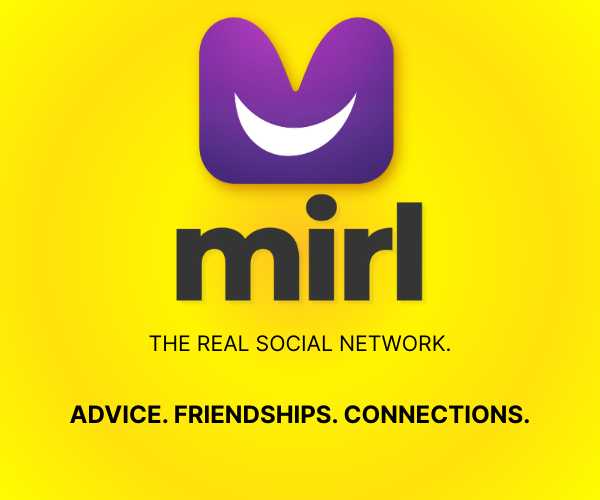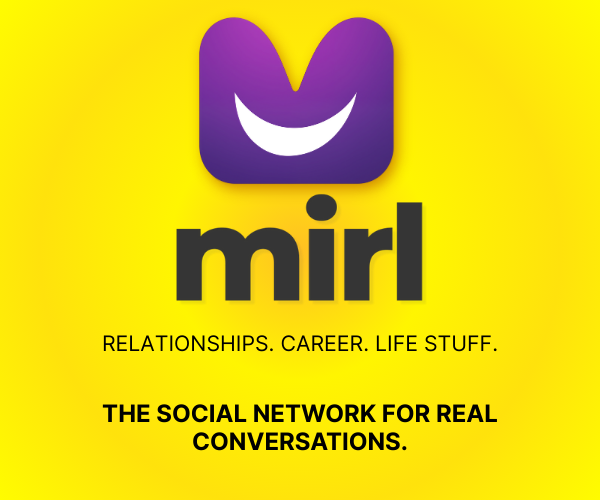Reassurance in a Relationship: 40 Signs & Ways to Reassure Someone You Love

We all need reassurance in a relationship, but do they need it? And how do you reassure someone you love? Here’s everything you need to know.
What is reassurance in a relationship? How does it work? When do people need it? How do you reassure someone you love? Reassurance isn’t easy to read because we’re all trying to be brave and project the whole “I don’t care” persona, but sometimes all you need to do is read between the lines.
Ever been in a relationship where things felt… off? Like, nothing major happened, but something just felt different. You sit there overthinking, rereading texts for tone, or mentally replaying the last conversation like it’s the Zapruder film, looking for clues. “Did I sound too cold?”
“Why didn’t they say ‘I love you’ like they usually do?” “Should I ask if we’re okay, or will that make things worse?”
Yeah. That’s the mind doing somersaults for reassurance, and it’s way more common than most of us admit.
In fact, that craving for comfort is baked into our psychological wiring. We don’t just want to be loved, we want to feel safe in that love.
Reassurance is the invisible thread that keeps relationships from unraveling in the face of doubt, distance, or insecurity.
It’s how we say, “I still choose you,” even when things feel uncertain. But here’s the catch: not everyone knows how to give or ask for it well. So let’s talk about it, what reassurance really is, why it matters, and how to offer it in a way that actually lands.
[Read: 33 Emotional Needs in a Relationship, Signs It’s Unmet & How to Meet Them]
What is Reassurance in a Relationship, and Why We All Need It
Reassurance in a relationship is the emotional equivalent of a warm, steady hug. It’s not grand gestures or over-the-top speeches. It’s those tiny, everyday affirmations that tell someone, “You’re safe with me. You’re loved here. You matter.”
Psychologically, reassurance is linked to attachment theory, originally developed by John Bowlby. Our early experiences with caregivers shape our expectations in adult relationships.
If your caregivers were consistent and loving, you likely developed a secure attachment style. But if they were distant, unreliable, or inconsistent, you may lean toward anxious or avoidant attachment, and that can show up as craving constant reassurance or shutting down emotionally.
📚 Source: Bowlby, J. (1969). Attachment and Loss: Volume I. Attachment.
But here’s the plot twist: everyone, even the most independent and emotionally healthy among us, needs reassurance sometimes. Because love isn’t just about attraction; it’s about security.
[Read: Avoidant Attachment Style: The Types, 32 Symptoms & How to Love One]
When reassurance shows up:
1. After a fight, when someone needs to know you’re still there
2. On a rough day, when a simple “I’m proud of you” goes a long way
3. During change, distance, or stress, when the usual routines feel shaky
We need reassurance not because we’re weak, but because connection is one of our strongest human drives. When it’s done well, it doesn’t feel needy, it feels nourishing.
The Subtle Signs Someone You Love Needs Reassurance
Not everyone will say, “I need you to reassure me.” In fact, many people don’t even realize they’re craving it.
But if you know what to look for, the signs are often written all over their behavior. Here’s how to recognize it before the panic texts start rolling in.
1. They ask, “Are we okay?” more than once
This isn’t just a passing question. It’s their way of checking if the emotional ground is still solid beneath their feet. [Read: Are You More Than Friends? 17 Signs You’ve Gone From Talking to Dating]
People who ask this aren’t being dramatic, they’re often reliving experiences where relationships suddenly shifted or ended without explanation. They want to catch the crack before it becomes a collapse.
2. They get quiet or withdrawn when something feels off
Some people don’t fight or argue when they feel insecure, they disappear into themselves.
Silence can be their emotional armor, a way to protect themselves from rejection or further disappointment. It’s not distance for the sake of space; it’s fear masked as indifference. [Read: How Guys Text When They Like You and 28 Signs to Decode His Behavior]
3. They over-apologize for small things
Excessive apologies often reflect someone who’s been conditioned to believe that mistakes equal rejection.
If they’re saying sorry for texting late or asking a question, they might be bracing for you to be upset. Apologizing becomes their safety net.
4. They seem unusually sensitive to your tone or words
Did you say “okay” instead of “sure babe”? That tiny change might feel massive to them.
Their radar is tuned in to micro-signals of emotional shift because they’re trying to predict and prevent hurt. It’s not pettiness, it’s protection.
5. They constantly seek validation
Reassurance often comes disguised as everyday questions: “Do I look okay?” “Was that stupid to say?”
These aren’t surface-level questions, they’re emotional temperature checks. They want to know if they still feel loved, respected, or worthy in your eyes.
6. They worry you’ll leave them, even when things are fine
It’s not that they don’t trust you. It’s that their past has taught them not to trust stability.
This can show up as checking in too often, panicking over perceived disinterest, or even pushing you away before you get the chance to hurt them. [Read: Why Do People Break Up Even If They’re Still in Love?]
7. They need you to say “I love you” often
To you, those three words might feel like a cozy routine. To them, it might be the glue holding their emotional safety together.
If they’re craving those words more often, they’re probably trying to fill a hole of doubt or fear inside themselves.
8. They become anxious when your behavior changes, even slightly
A late reply, a shorter goodnight kiss, a missed inside joke, these small things might send them spiraling.
It’s not the behavior itself but what it might mean to them. They’re connecting invisible dots that point toward emotional distance. [Read: 26 Calm Steps to Date Someone with Trust Issues & Win Their Trust and Love]
9. They test you (without realizing it)
They might say something slightly provocative or negative like, “You probably don’t even miss me,” not because they believe it, but to see how you respond. It’s a subconscious way of seeking proof of your love, disguised as emotional drama.
Weekly movie nights, morning check-ins, or those goodnight calls aren’t just fun, they’re anchors. These rituals become evidence that the relationship is still solid.
When those routines shift, their emotional footing might feel shaky.
If your partner shows any of these signs, it doesn’t mean they’re insecure or immature. It means there’s an opportunity to make them feel more secure, and that can only deepen your connection.
11. They seek reassurance even after it’s already been given
If you’ve said, “I’m not mad,” or “I love you,” and they still seem uncertain or come back to the same worry later, it’s a sign that their emotional anxiety is running the show.
It’s not that they don’t trust you, it’s that they’re having trouble internalizing comfort. [Read: Overly Attached Boyfriend: 28 Signs, Why He’s Hooked & How to Fix Him]
12. They become overly agreeable to avoid tension
You’ll notice them constantly saying “it’s fine” or “whatever you want,” even when it clearly isn’t. This tendency often stems from a fear that standing up for their own needs will result in abandonment or conflict.
13. They try to read between your lines, even when there’s nothing there
If they overanalyze your texts or interpret casual comments as veiled insults or signs of disinterest, they may be seeking emotional clues because they don’t feel comfortable asking directly for reassurance.
14. They mirror your moods to avoid rejection
If you’re down, they suddenly become subdued. If you’re angry, they go into full agreeableness mode.
This behavior is a subconscious attempt to stay emotionally “in sync” as a protective measure.
15. They frequently compare themselves to others in your life
They may ask things like, “Do you talk to her about this stuff too?” or “Was your ex more fun than me?” These comparisons are rooted in a fear of being replaced or not measuring up. [Read: 16 Common Relationship Tips that Ruin Your Love Life]
16. They express love in overly intense ways
Big, dramatic gestures or declarations of love might feel sweet, but if they come too often or feel disconnected from the moment, it may be their way of seeking reciprocation or affirmation.
17. They panic when plans change
Even a rescheduled dinner or postponed call can trigger anxiety. [Read: 40 Things Guys Say When They Like You & Actions that Mean a Lot More]
It’s not about the plan, it’s about the perceived shift in emotional stability. Their mind quickly jumps to “What if this means you’re pulling away?”
18. They ask for reassurance in roundabout ways
Instead of saying, “I need to feel close to you,” they might say, “I feel like you don’t like me anymore.” These comments often mask a desire for connection with a layer of defensiveness.
19. They want constant updates about your feelings
Questions like “What are you thinking right now?” or “Do you still feel the same way?” aren’t nosy, they’re often signs that someone is struggling to trust in the stability of your affection. [Read: 37 Ways to Stop Being Clingy & Holding On So Tight You Push Them Away]
20. They interpret silence as something being wrong
A quiet car ride, a lull in conversation, or even just you being focused on something else can make them assume the worst. Their brain associates stillness with emotional withdrawal, not peace.
If you recognize these signs in someone you love, or even in yourself, it’s not something to shame or avoid. Reassurance isn’t a weakness. It’s a call for connection. And learning to respond to that call with warmth and intention is how trust deepens and love lasts.
The Best Ways to Reassure Someone You Love (That Actually Work)
So you’ve spotted the signs. You know your partner needs a little extra emotional grounding. But what now?
The goal of reassurance isn’t to coddle or fix. It’s to anchor. To give your partner a feeling of safety that doesn’t have to be earned, begged for, or hinted at with emotional charades.
Real reassurance is rooted in consistency, empathy, and emotional presence. Let’s break it down into real, usable ways you can show up for someone and help them feel secure.
1. Say the obvious out loud
“I love you.” “I’m not going anywhere.” “We’re okay.” Even if it feels repetitive to you, these words are stabilizers. They aren’t fluff, they’re emotional first aid.
When someone is emotionally anxious, they don’t need mystery or games. They need clarity. Let them hear what their heart is scared to assume.
2. Offer physical affection with intention
Not just the distracted forehead kiss or the habitual hug before you run out the door. We’re talking slow, conscious, emotionally-attuned touch. [Read: Forehead Kiss: What It Means & 15 Subconscious Signs Why It’s So Special]
A hand held longer than usual. A hug that doesn’t rush away. Touch activates the body’s calming system and creates wordless safety.
📚 Source: Holt-Lunstad et al. (2008). Physical Touch Reduces Stress
3. Follow through on your word
When you say, “I’ll call you after work,” and you do it, that’s reassurance. It’s not about micromanaging your time, it’s about proving you’re dependable.
Inconsistency might not register to you, but to someone emotionally anxious, it can feel like a warning sign.
4. Ask them how they’re really doing
And wait for the real answer. Not the automatic “I’m fine,” but the one that follows the pause.
Give them room to be vulnerable. When you listen deeply without distraction, you’re saying, “Your inner world matters to me.” [Read: 17 Signs of a Supportive Partner Who Encourages You & Your Goals]
5. Mirror their fears back without judgment
If they say, “I feel like I’m annoying you lately,” instead of brushing it off, try, “It sounds like you’re feeling insecure about how we’ve been connecting.” Mirroring helps them feel seen and validated, instead of dismissed.
6. Send them affirming messages out of the blue
Not just when they ask for it, but when they least expect it. A short message saying, “I’m so lucky to be with you” or “You’re doing better than you think” can reroute a spiral before it begins.
7. Let them talk without trying to fix it
Sometimes reassurance isn’t about the solution, it’s about sitting with the emotion. If they’re venting about work or a personal doubt, your “I hear you” can be far more healing than a 10-point action plan.
You don’t need to be a stoic rock all the time. Admitting “I get scared of losing you sometimes too” or “I struggle with feeling enough, just like you” creates a safe emotional loop. Mutual vulnerability builds intimacy. [Read: How to Be Vulnerable in a Relationship, Open Up & 28 Secrets to Grow Closer]
Little things done regularly, like a morning “good luck” text before a big meeting, or pizza every Sunday, become safety anchors.
They show that no matter what’s changing around you, this part of your relationship stays the same.
10. Use their love language intentionally
Don’t just default to what you like, learn what makes them feel valued.
If their love language is acts of service, making them coffee means more than saying “I love you.” Speak love in their dialect, not just yours.
📚 Source: Chapman, G. (1992). The 5 Love Languages
11. Reassure them during conflict, not just after
When tensions rise, it’s easy to go into defense mode.
But if you pause and say, “I’m upset, but I still love you,” or “We’ll get through this,” you’re reminding them that the relationship isn’t at risk just because you’re having a hard moment.
12. Validate their emotions, even if they don’t make sense to you
You might not understand why your partner feels triggered or insecure about something. That’s okay.
Say, “I can see this is really hard for you,” instead of “You’re overreacting.” Empathy is far more reassuring than logic.
13. Express appreciation for who they are, not just what they do
Instead of only praising their actions (“Thanks for doing the dishes”), highlight who they are. Try, “I love how thoughtful you are.” These compliments are deeper and stick around longer. [Read: 44 Warm Ways to Say “I Appreciate You” & Show Appreciation without Words]
14. Hold space for their insecurities without flinching
If they open up about something they’re ashamed of, past trauma, a recurring fear, don’t minimize it or change the subject. Stay with them. Your calm presence in their vulnerable moment creates deep emotional safety.
15. Use consistent verbal check-ins
Ask questions like, “How are we feeling about us lately?” or “Do you feel loved by me these days?” Regularly checking in gives them permission to express doubt or need before it builds into something bigger.
16. Give them time to self-soothe, but remind them you’re still there
If your partner tends to spiral or withdraw when they feel anxious, say, “Take the time you need, but I’m not going anywhere.” You’re reassuring them even while respecting their coping style. [Read: Why Givers Feel Unappreciated & Under-Valued in a Relationship & How to Fix It]
17. Compliment their growth, not just their strengths
Saying “I’ve noticed how much better you’ve gotten at handling stress lately” reinforces the idea that they’re evolving, and that you see them as more than just their struggles.
18. Remember the little details
Did they say they were nervous about a dentist appointment or excited for a friend’s birthday? Bring it up. When you remember the small stuff, it says, “You matter enough for me to pay attention.”
19. Normalize their fears
Instead of reacting with frustration, say, “It makes sense you’d feel that way given what you’ve been through.” This approach validates without enabling, and helps your partner feel less alone in their anxiety.
20. Tell them what you love about the way they love you
“Sometimes I replay that thing you said to me when I was down, it meant a lot.” Or “I feel so safe when you hold me like that.”
Reflecting their love back to them not only reassures, but also affirms the impact of their presence. Even if your partner doesn’t always know how to ask for it, reassurance is one of the most healing gifts you can give.
Not because they’re broken. But because all of us feel wobbly sometimes, and love is at its strongest when it steadies us instead of judging the wobble. [Read: Taking Someone For Granted: Why We Do It, Bad Effects & 27 Ways to Stop It]
When Reassurance Becomes Too Much
While reassurance is essential, there’s a delicate tipping point where it can stop being comforting and start feeling like pressure.
If one partner becomes the sole emotional regulator in the relationship, constantly walking on eggshells to keep the other calm, reassurance loses its intimacy and starts feeling like a responsibility.
It can create an emotional feedback loop where the more reassurance is given, the less secure the anxious partner feels, reinforcing the very anxiety it’s trying to soothe.
When every interaction becomes a test of love or loyalty, that’s a sign that the need for reassurance has shifted from healthy vulnerability to emotional dependence.
How to Set Boundaries with Reassurance Lovingly
Healthy reassurance doesn’t mean abandoning your own emotional needs to keep your partner afloat. [Read: 25 Types, Ways & Tips to Set Boundaries with Friends Without Insulting Them]
In fact, the most loving form of support often includes setting gentle boundaries. You can say, “I love you, and I know you’re struggling right now, but I can’t answer this question again tonight, can we talk about it tomorrow when we’re both rested?”
Boundaries can coexist with love. When you name your limits kindly, you’re showing that the relationship is strong enough to hold both people’s needs.
It also gives your partner a chance to build their own emotional resilience, rather than leaning on you as their sole source of stability. [Read: Boundaries in a Relationship: 43 Healthy Dating Rules You MUST Set Early On]
Building a Secure Connection Together
The real magic of reassurance doesn’t happen in moments of panic, it’s built slowly, through repeated emotional safety.
A secure relationship is one where both partners feel they can turn toward each other, without fear of being dismissed or criticized. But it’s also a space where both individuals can grow. That means being there when your partner needs you and encouraging them to trust themselves.
It means checking in regularly, celebrating emotional wins, and continuing to learn each other’s inner world like it’s always evolving, because it is. Security isn’t static; it’s a dance of support, trust, and growth.
Reassurance in Love Makes Love Stronger
Reassurance in a relationship isn’t a one-time fix or a rehearsed line. It’s a daily act of choosing each other, especially when doubt creeps in.
When it’s offered with intention, received with openness, and balanced with self-awareness, reassurance becomes more than comfort, it becomes connection.
[Read: 23 Secrets & Real Life Problems that Make a Relationship Stronger]
So if you’re wondering how to feel reassured, or how to offer reassurance in a relationship, tell them you love them. Show them they matter. And let your relationship be the safe harbor where both of you can rest, grow, and love a little louder.



















